T-Mobile plans to continue advertisements where it claims to have the fastest 4G LTE network in the United States despite complaints from Verizon and a recommendation to stop from the National Advertising Division (NAD), the company told Ars Technica in a statement today.
The National Advertising Division, which aims to review advertisements for truthfulness and accuracy to settle disputes without litigation, last week said the data T-Mobile used as proof for its fastest network claim was not sufficient.

T-Mobile used crowd-sourced data from Ookla and Open Signal to support its claim, with the data collected in early 2017 around when Verizon's unlimited data plan first rolled out. Verizon complained to the NAB and said the speed tests may have included data from Verizon customers who had been deprioritized for the first time after using over 22GB of data, making them inaccurate.
The NAD agreed that the tests may have had a bias in favor of T-Mobile and recommended T-Mobile stop all advertisements claiming to have the fastest network.
T-Mobile agreed to comply with the NAD's recommendation, but was able to find new data to support the claim. Instead of basing its statement on data collected earlier this year during the time that Verizon's unlimited data plan rolled out, T-Mobile now cites new OpenSignal and Ookla data on its website collected later in 2017. T-Mobile says it plans to continue on with its advertisements using the new data.
"On the fastest LTE network challenge, NAD ruled that the one month of crowd-sourced data we submitted (when Verizon launched their unlimited plan) could not be used," said T-Mobile Senior VP of corporate communications Janice Kapner. "NAD previously recognized third-party crowd-sourced data as a way to look at network performance, so we looked at the latest results, and verified what we already knew! T-Mobile is still the fastest LTE network and we'll continue to let consumers know that!"
"We did say we'd comply with NAD's recommendation, and we will, but that means we won't rely solely on the specific data we submitted. We have taken the NAD's concerns into consideration and are confident we have robust data that addresses them and proves, once again, that we have the fastest LTE network," a company spokesperson told Ars.
As T-Mobile says, the NAD recommendation only applies to data collected during the initial test cited in Verizon's complaint and not to the new data that's been collected. Verizon can submit a new complaint, though, which will require the NAD to again take a look at the data T-Mobile is using.
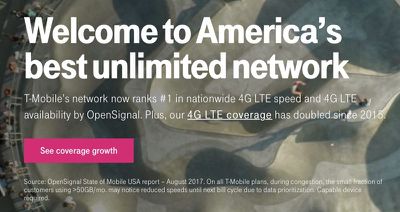
While T-Mobile plans to continue to say that it has the fastest LTE network, the company has agreed to modify some other claims about its coverage. The NAD looked at the following T-Mobile claims:
- T-Mobile has near-equivalent area and/or geographic coverage as Verizon
- T-Mobile covers 99% of the area covered by Verizon
- T-Mobile covers 313,312 or "311 Million and Counting" Americans with 4G LTE
- T-Mobile "covers 99% of the Americans that Verizon covers" and 99% of Verizon's customers
T-Mobile does cover 99.7 percent as many Americans as Verizon, but it does not offer 99.7 percent of the geographic coverage that Verizon offers, so the NAD recommended T-Mobile modify its advertising to make it clear that coverage comparisons are based on population. T-Mobile says it will comply with the request going forward and will remove ads featuring imagery of geographic coverage that could be confusing.


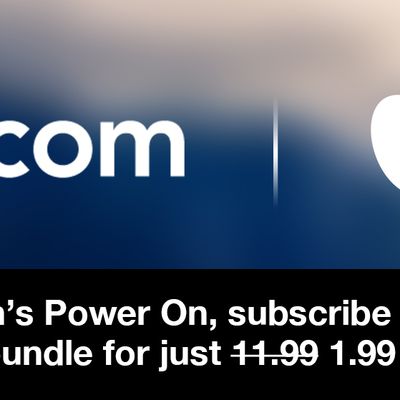
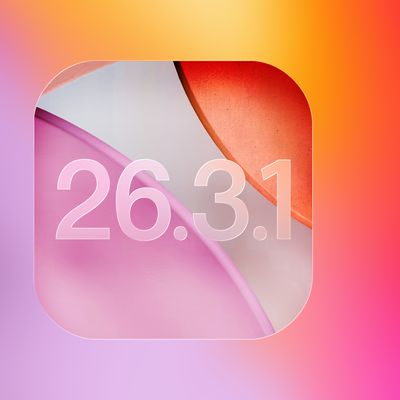

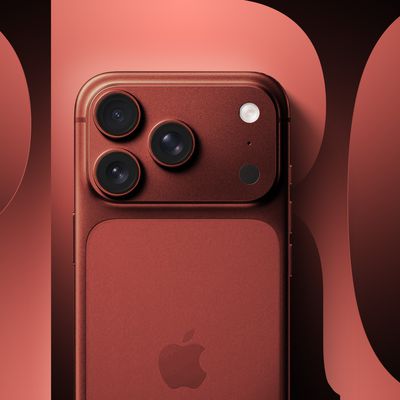

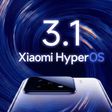













Top Rated Comments
There is a reason T-Mobile spent $8 billion dollars on the 600mhz govt auction this year, and why they are spending a ton to get it up and running as fast as humanly possible. T-Mobile knows it is lacking in many rural areas, and it’s doing what needs to be done to correct the issue.
If T-Mobile doesn’t work in your area, then use Verizon or ATT. More power to ya. I don’t mind recommending either service provider to a customer if I know it will give them a better experience. I consider it worse if a customer comes back to cancel because they feel like we deceived them. Others may do that, but my store won’t.
In the end, hate T-Mobile and it’s CEO John Legere all you want, but you can’t deny T-Mobile has impacted the cellular industry in the US for the better. Got rid of contracts, brought the cost of plans down, increased data caps and forced both ATT and Verizon to give their customers unlimited plans at reasonable prices.
At least I can talk on the phone while surfing the web.